January – March 2024 issue of Peace Magazine
- Details
- Category: World Hot News
- Published: Sunday, 07 January 2024 20:59
- Written by Gentry
 Please click on the picture above to browse
Please click on the picture above to browse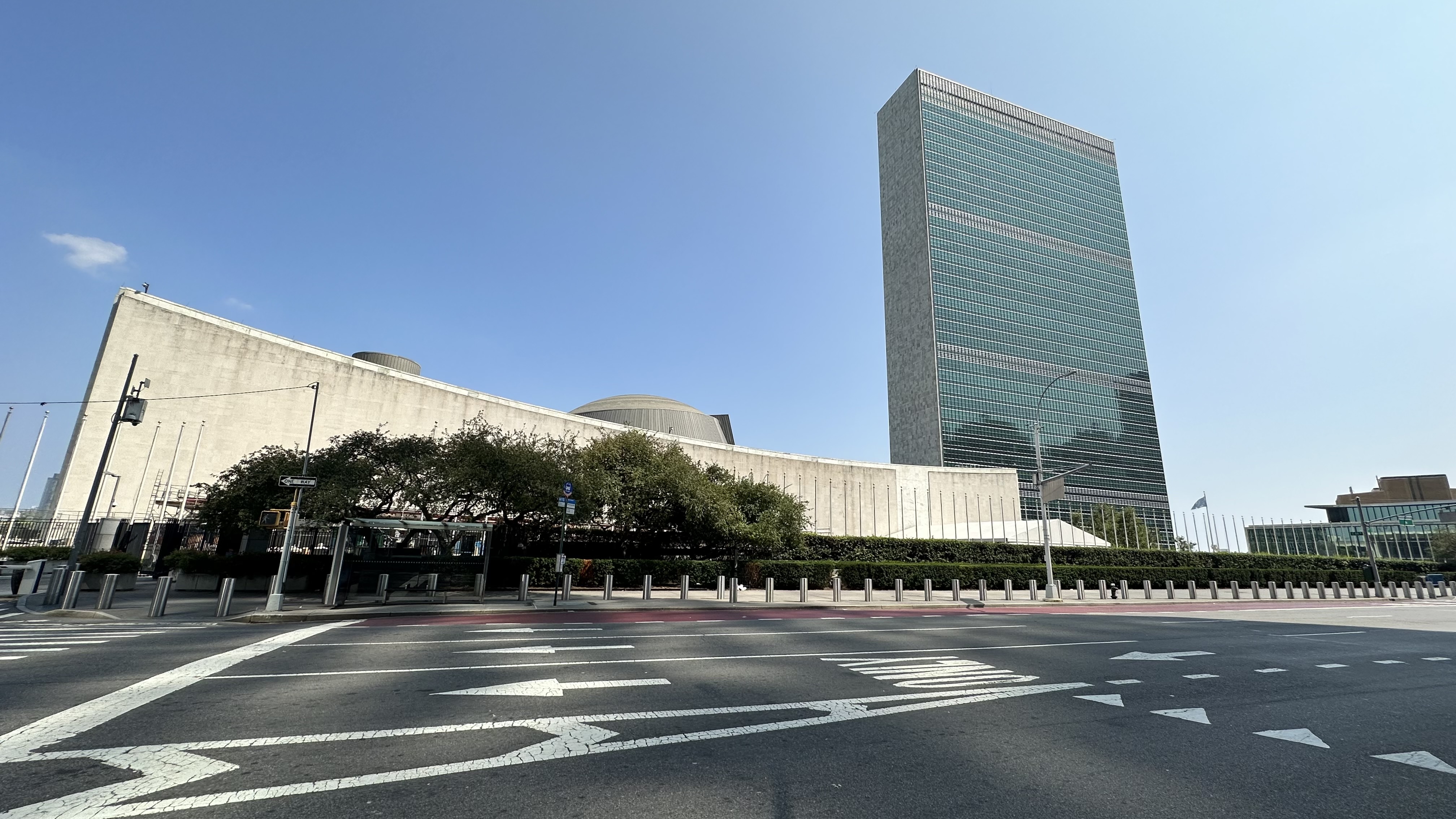


 Please click on the picture above to browse
Please click on the picture above to browse


 UN Partnerships/ Pier Paolo Cito Carme Artigas, Secretary of State for AI and Digitalization, speaking at the SDG Pavilion in September, 2023
UN Partnerships/ Pier Paolo Cito Carme Artigas, Secretary of State for AI and Digitalization, speaking at the SDG Pavilion in September, 2023
The release of GPT-4 in 2023, along with other powerful easy-to-use Artificial Intelligence tools such as deepfakes and voice cloning, led to heightened calls for regulation of the technology. UN News speaks to Carme Artigas, Co-Chair of the UN’s AI Advisory Body, about the group’s recommendations for advancing the international governance of AI.
Carme Artigas is recognized as one of the foremost authorities on AI. After several years in the private sector, she was named Spain’s first-ever Secretary of State for Digitalization and AI in 2020 and, during her mandate, introduced Spain's National Strategy for AI, National Plan for Digital Skills, and Charter of Digital Rights.
In October 2023, as Co-Chair of the UN’s AI Advisory Body, Ms. Artigas led the 38 members in the production of an interim report, published in December, which concluded that AI “cries out for governance, not merely to address the challenges and risks, but to ensure we harness its potential in ways that leave no one behind.”
On the final day of her mandate, on 28 December, Ms. Artigas reflected on the role of the UN in creating globally agreed regulations on the use of the technology, and why it could herald a better future for all.
Carme Artigas: I think what makes this wave of A.I. development different is that the technology can continue evolving without human agency, and that it not only affects the economy, but also society, and the role of human beings in this digital world.
It is affecting the way we see reality, which can generate issues of trust. What if we cannot tell the difference between something written by a machine or a human? We will be in a very confusing world.
I think the release of GPT-4 was a “Eureka” moment, when we realized the enormous impact it could have, and why we need some kind of global regulation.
Also, it was necessary that this is discussed at the UN level, because all the discussions so far have only taken place within a few companies and governments, all of them in the Global North.
UN News: The Advisory Body contains a diverse group of members from the Global South and North, the private and public sectors, and academia. How did you manage to reach agreement on the recommendations in the interim report?
Carme Artigas: It was definitely a challenge, but because some other initiatives had taken place – such as the G7 Hiroshima Plan, the UK’s AI Safety Summit, and regulation around deepfakes in South Korea – we agreed that we needed to come to a global consensus on how can we use artificial intelligence to be better than human intelligence, which has so far only managed to achieve 16 per cent of the Sustainable Development Goals.
The UN is the only authoritative global entity at the global level that has the capacity to gather all these diverse visions, and the members were aligned on the benefits, the opportunity to avoid a global AI divide, ensure that it benefits all people, and is governed in a way that does not hamper innovation, or put fundamental human rights at risk.
UN News: In 2023 some of the most foremost experts on AI called for a pause or even a halt in AI research until governance is more widely agreed. Were they right?
Carme Artigas: I think it's a little bit naive to ask for a pause in innovation. On the contrary, we should accelerate innovation and research, so that the solutions can be found.
I always say that the existential risk is not from an Armageddon created by robots that kills us all. The real existential risk is that we all become mad, because we cannot believe what we are seeing, hearing, or reading.
Also, we need to be very responsible about the sustainability of these technologies, which are playing a very important role in geopolitics these days, in terms of who has access to raw materials and processing power. So, one of the topics we're trying to focus here is how can we allow for universal accessibility of data, computer power, digital skills to allow for a more even and distributed development of AI for good.
UN News: Share some of the ways in which AI will improve the world.
Carme Artigas: I think the AI is a very important tool for democracy, because it can make the knowledge of all humanity available, and make personalized education accessible to all.
It will have a tremendous impact in healthcare , preventing diseases, improving diagnoses, and lowering costs.
And it will be tremendously useful in the achievement of the Sustainable Development Goals, reducing poverty, tackling climate change, and other global challenges that humanity has had limited success in solving.
UN News: Melissa Fleming, the head of communications at the UN, recently told a meeting of Security Council members that the advent of generative AI means the online environment is about to get even worse, undermining public trust in news and information sources.
Is this a source of concern for you, or is the fact that there is more discussion about this issue a sign that we're gearing up to tackle this thread?
Carme Artigas: The fact that we have raised the conversation at the global level gives me a lot of hope.
The news media have a very important role to play, and they must recover their role as “the fourth estate” because we need them more than ever. There are lots of ways that we can verify news, and that’s what serious media organizations should be doing. It’s ok to have different opinions, but you can’t sell fake news, because it just generates uncertainty and a lack of trust.
One or two years ago, when only a few of us were taking about this, I was concerned. But, thanks to GPT-4, everyone has seen how pervasive AI is, and that we need to put some limits on its use.
 UN Photo/Eskinder Debebe Secretary-General António Guterres (at podium) briefs reporters on the situation in Gaza. At right is Stéphane Dujarric, Spokesperson for the Secretary-General.
UN Photo/Eskinder Debebe Secretary-General António Guterres (at podium) briefs reporters on the situation in Gaza. At right is Stéphane Dujarric, Spokesperson for the Secretary-General.
UN Secretary-General António Guterres expressed hope that a Security Council resolution to get more aid into Gaza, adopted on Friday, could pave the way to a humanitarian ceasefire between Israel and Hamas.
Mr. Guterres was speaking at a press briefing at UN Headquarters shortly after the 15-member Council passed the resolution following days of negotiation.
He told journalists that there has been no significant change in the way the war has been unfolding in Gaza, with no effective protection of civilians.
He outlined devastation that includes more than 20,000 Palestinians reportedly killed and 1.9 million people, 85 per cent of the population, forced to flee their homes. The Gaza health system is on its knees, clean water is at a trickle and the World Food Programme (WFP) has warned of the threat of widespread famine.
"A humanitarian ceasefire is the only way to begin to meet the desperate needs of people in Gaza and end their ongoing nightmare," he said. "I hope that today’s Security Council Resolution may help this finally to happen but much more is needed immediately.”
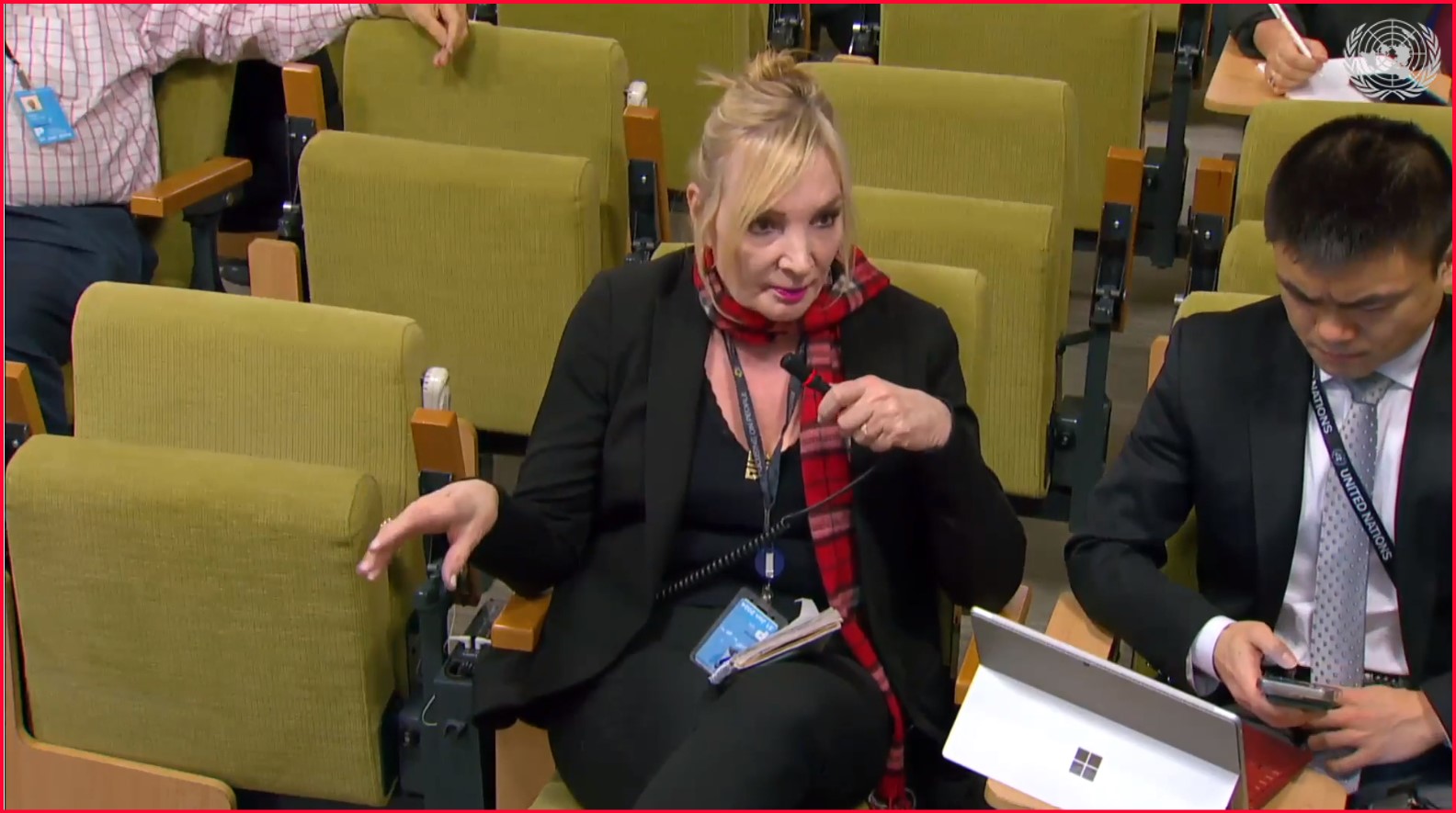
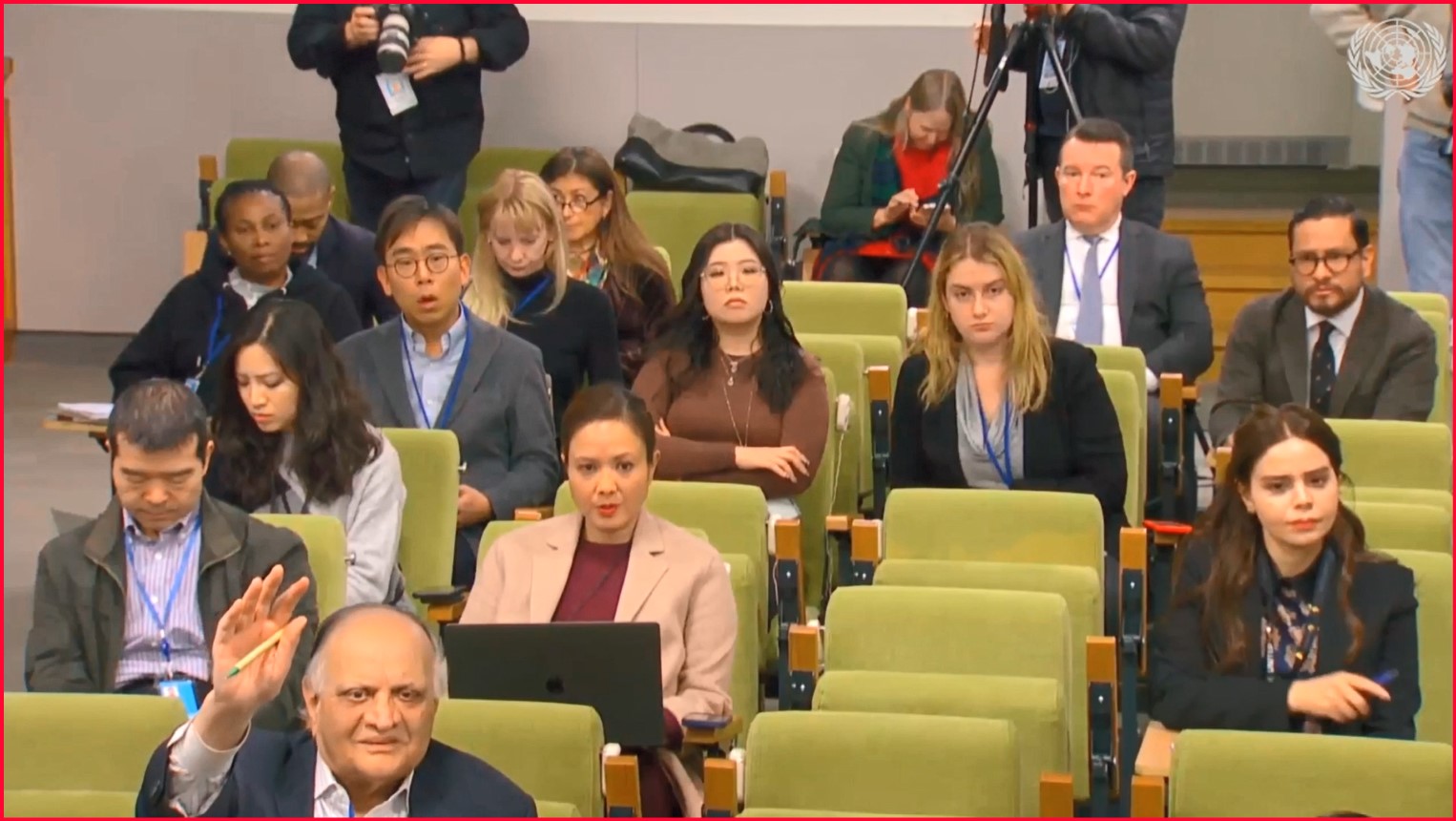
Mr. Guterres said it was a mistake to measure the effectiveness of the humanitarian operation in Gaza based on the number of aid trucks that are allowed to enter the enclave.
“The real problem is that the way Israel is conducting this offensive is creating massive obstacles to the distribution of humanitarian aid inside Gaza,” he said.
He stressed that an effective aid operation there requires four elements that currently do not exist, namely security, staff who can work in safety, logistical capacity, and the resumption of commercial activity.
Regarding security, he noted that the intense Israeli bombardment and active combat in densely populated areas threatens both civilians and aid workers.
While humanitarian staff need to be able to live and work in safety, 136 personnel from the UN agency that assists Palestinians, UNRWA, have been killed since the start of the conflict, he said, adding that “nowhere is safe in Gaza.”
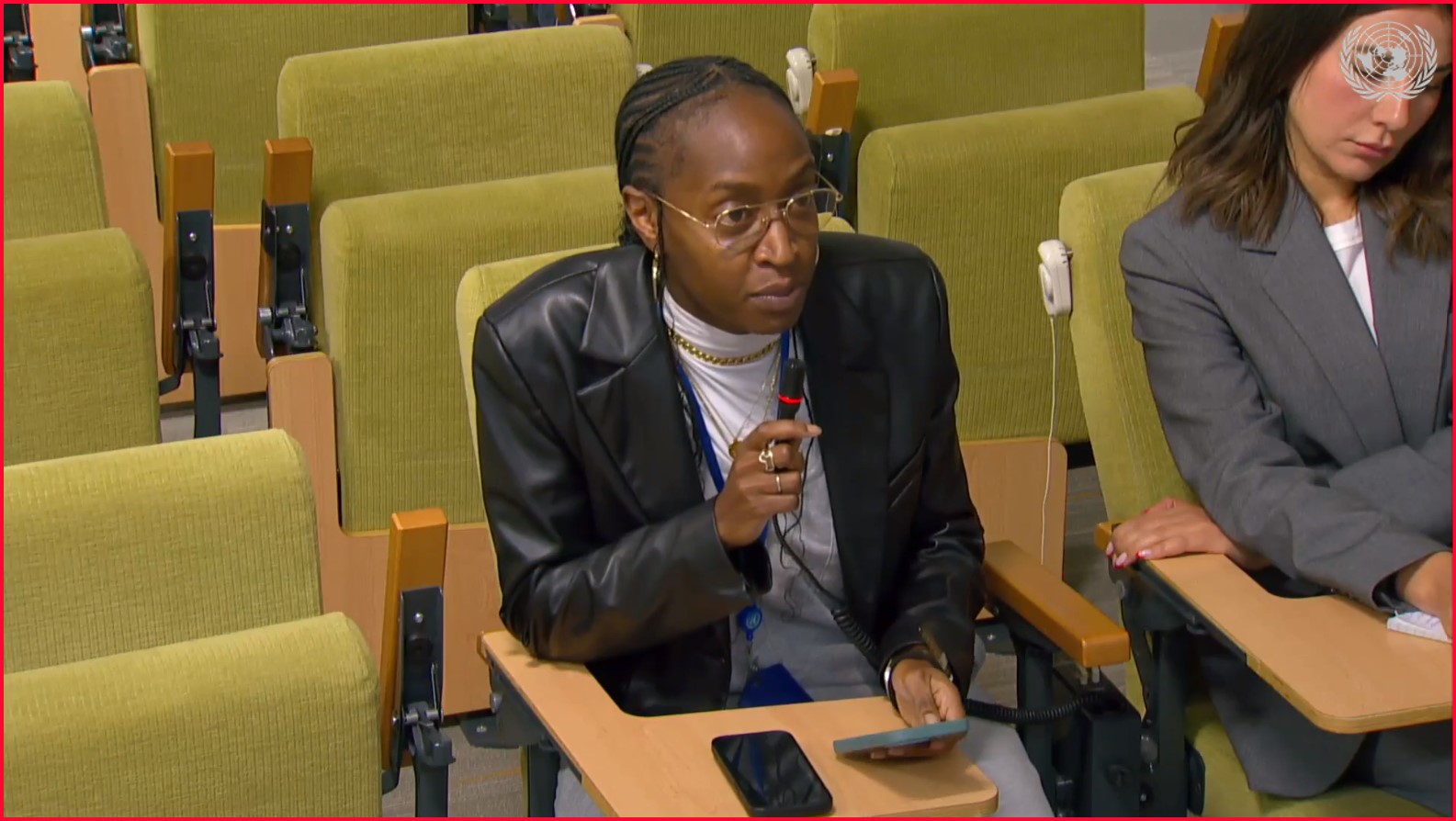
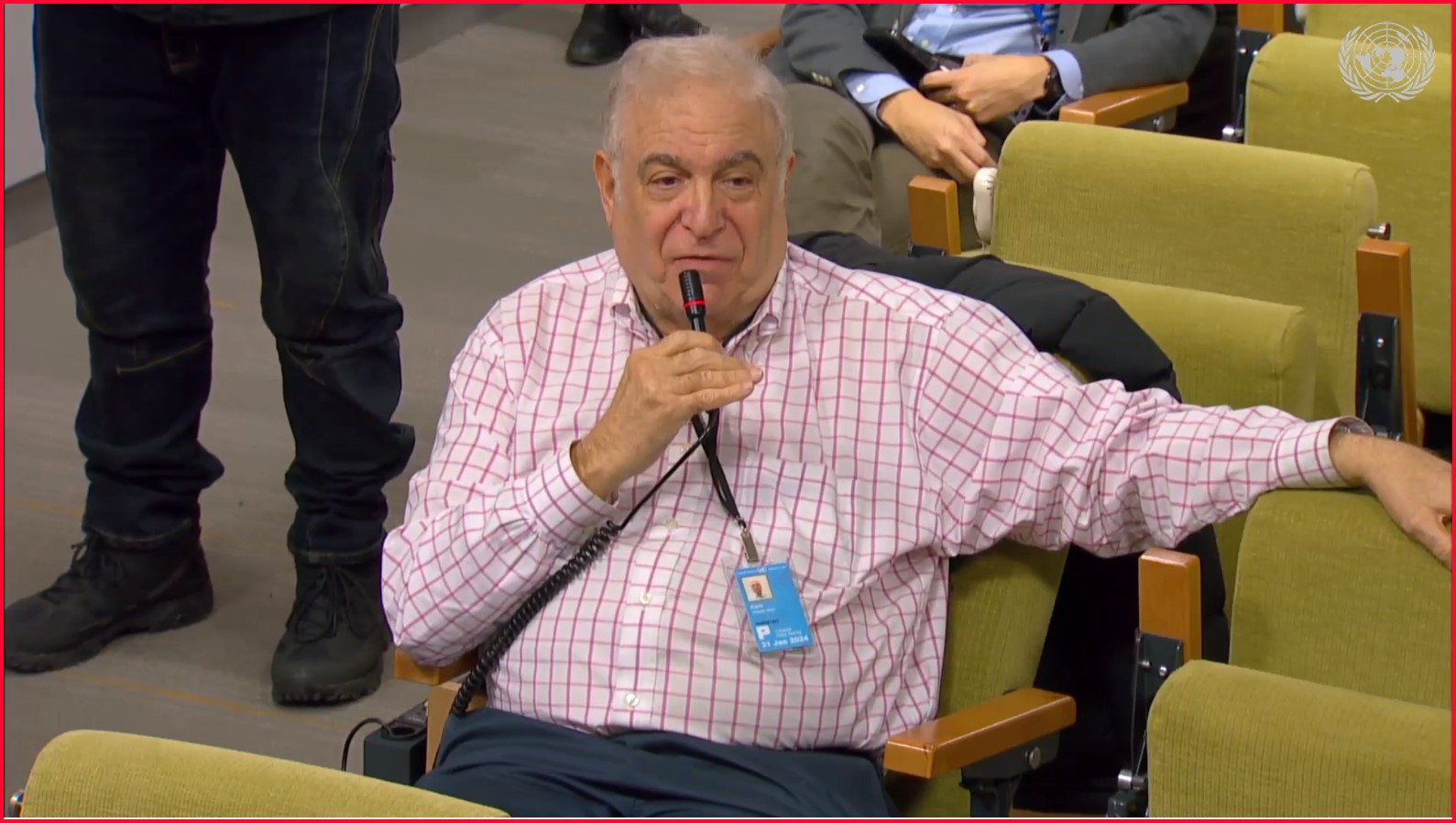
Turning to logistics, he reported that every aid truck that comes through the two open border crossings with Gaza - Kerem Shalom and Rafah - must be unloaded and then re-loaded for distribution across the enclave.
“Many of our vehicles and trucks were destroyed or left behind following our forced, hurried evacuation from the north, but the Israeli authorities have not allowed any additional trucks to operate in Gaza. This is massively hampering the aid operation,” he said.
Furthermore, aid delivery in the north is extremely dangerous due to active conflict, unexploded ordnance, and heavily damaged road, he added, while frequent communications blackouts in Gaza make it virtually impossible to coordinate the distribution of aid and people’s access to it.
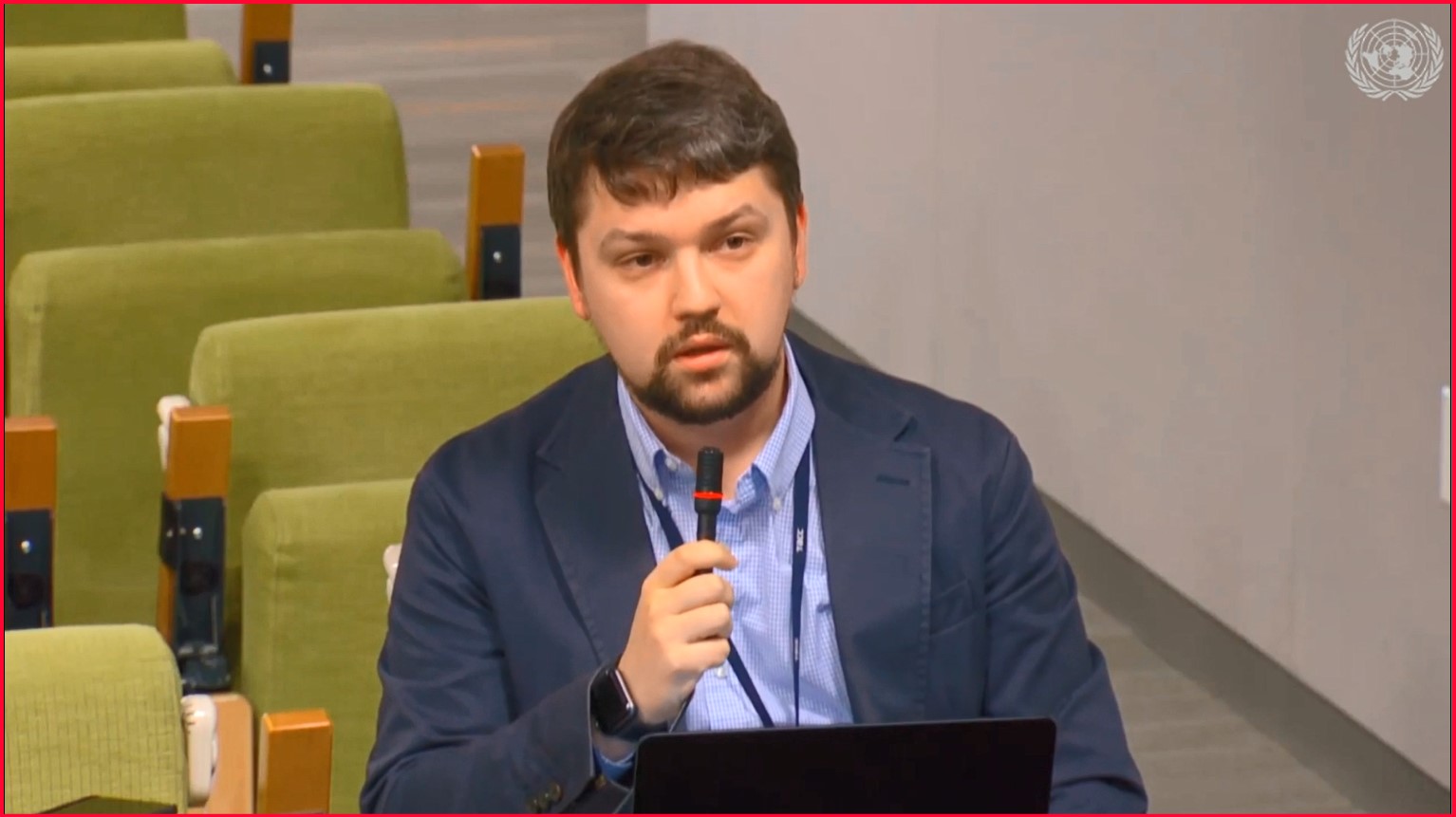
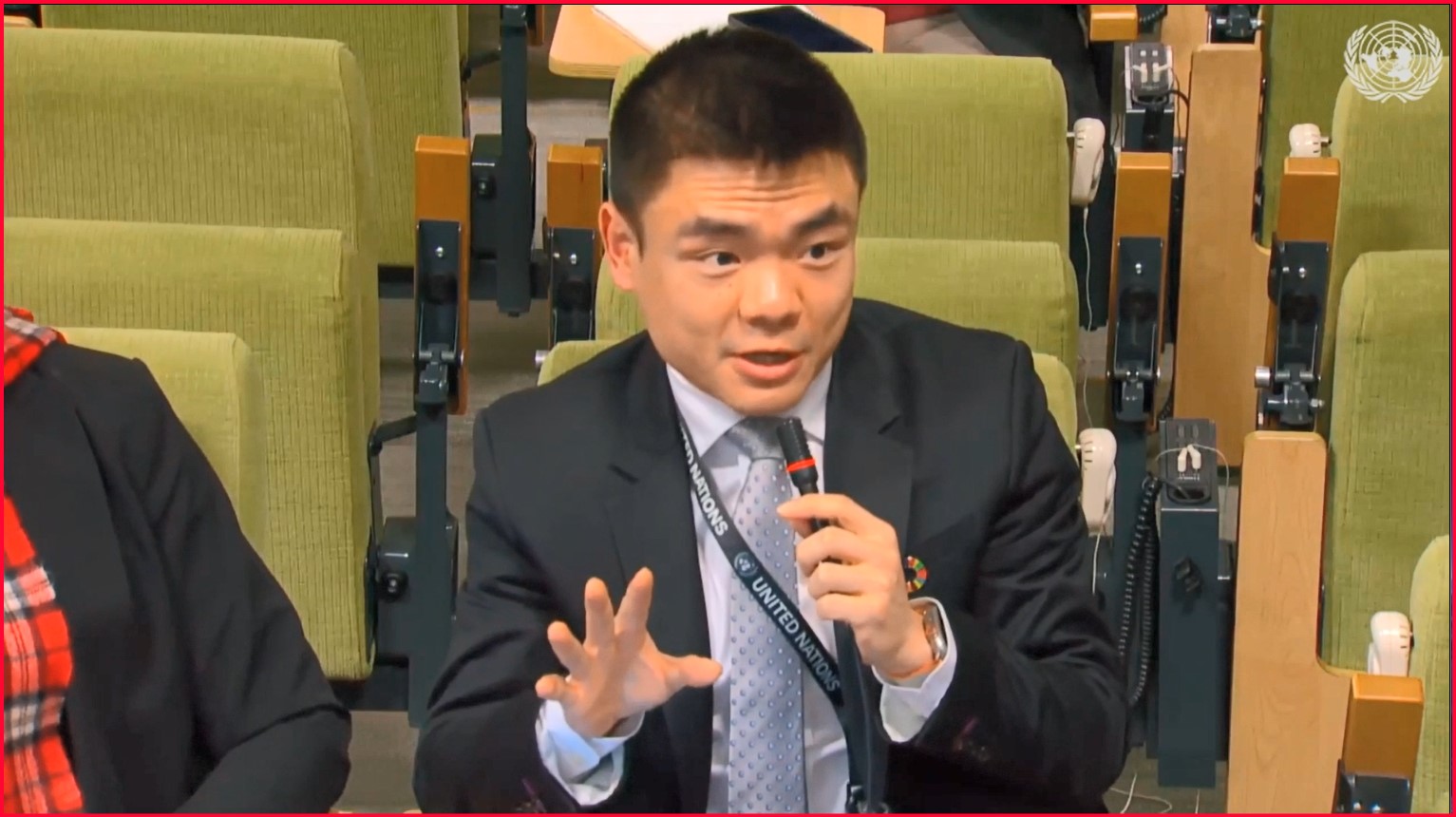
Looking to the longer term, the UN chief also upheld the two-State solution between Israelis and Palestinians as “the only path to sustainable peace.”
He said spillover from the conflict is already being felt in the immediate region and beyond, posing a significant and growing threat to global peace and security.
“As the conflict intensifies and the horror grows, we will continue to do our part. We will not give up,” the Secretary-General said.
“But at the same time, it is imperative that the international community speak with one voice: for peace, for the protection of civilians, for an end to suffering, and for a commitment to the two-state solution – backed with action.”
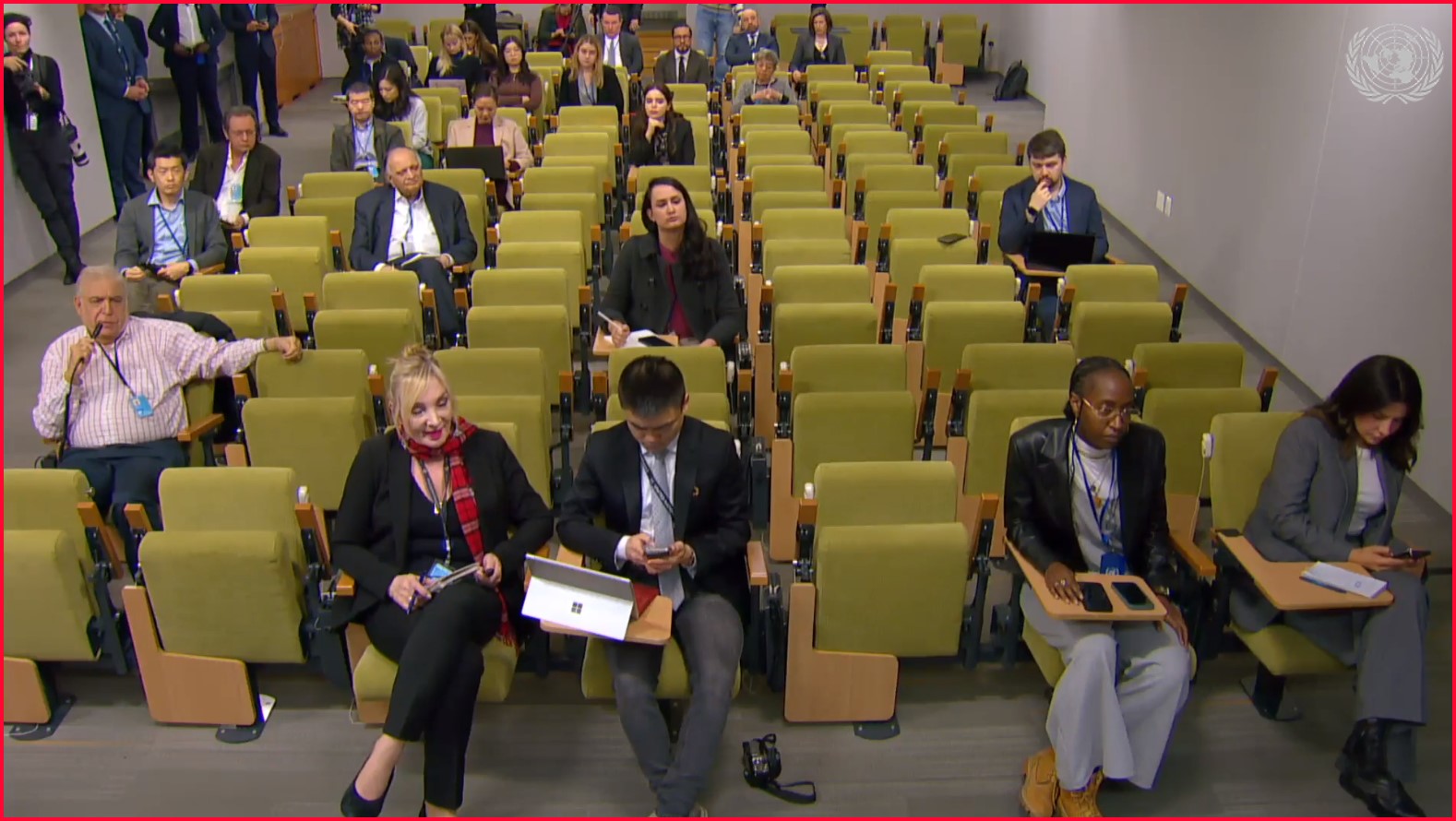
 © UNOCHA/Alina Basiuk Destroyed buildings in Odesa, a port city in southern Ukraine.
© UNOCHA/Alina Basiuk Destroyed buildings in Odesa, a port city in southern Ukraine.
The UN Secretary-General on Friday condemned in the strongest terms a massive aerial attack by Russia on Ukrainian towns and cities, which left at least 30 civilians dead and over 160 injured.
Overnight, Russian armed forces reportedly launched 158 missiles and drones in several waves targeting locations across Ukraine, including in Kyiv, Lviv, Kharkiv, Khmelnytskyi, Dnipropetrovsk, Sumy, Cherkasy, Odesa and Zaporizhzhia regions.
In a statement issued by his spokesperson, Secretary-General António Guterres underscored that attacks against civilians and civilian infrastructure “violate international humanitarian law, are unacceptable and must end immediately”.
He also extended his deepest condolences to the families of all the victims and wished a speedy recovery to the injured, the statement added.
Also on Friday, the Security Council held an urgent meeting on the situation in Ukraine, where members were briefed by Khaled Khiari, Assistant Secretary-General at the UN Department of Political and Peacebuilding Affairs.
Since the Department’s last briefing to Council members on 6 December, “we have continued to see daily reports of attacks on Ukrainian cities and towns, including on critical civilian and energy infrastructure, with many resulting civilian casualties,” he said.
During the Christmas period alone, attacks on the city of Kherson reportedly killed several people and wounded many others, while apartment buildings, a medical facility and a railway station packed with more than a hundred civilians awaiting evacuation, were struck.
The Secretary-General condemns in the strongest terms the overnight large-scale missile and drone attack by the Russian Federation on Ukrainian cities and towns across the country, including against civilian and critical infrastructure. The attack reportedly resulted in at least 24 civilians killed and more than 134 injured.
Mr. Khiari reiterated the UN Secretary-General’s condemnation of the attacks on cities and towns across Ukraine.
“Attacks against civilians and civilian infrastructure violate international humanitarian law, are unacceptable and must stop immediately,” he stressed.
The Office of the UN High Commissioner for Human Rights (OHCHR) has verified some 1,888 civilian deaths and a further 6,334 injuries in 2023, bringing the total casualties since Russia’s full-scale invasion in February 2022 to 29,113.
The actual figures are likely considerably higher.
Mr. Khiari went on to note that, tragically, 2023 is ending as it began – with devastating violence against the people of Ukraine.
“Once again, Ukrainians are forced to spend the holidays seeking shelter, clearing the rubble, and burying the dead, amidst freezing temperatures,” he said.
“As we look to the New Year in the hope of avoiding further escalation, we recall the Secretary-General’s appeal to all concerned to do their part to help lay the foundations for sustainable peace in Ukraine – in accordance with the UN Charter, international law, and resolutions of the General Assembly,” he add
 © UNICEF/Aleksey Filippov Three siblings pose in clothes provided by UNICEF.
© UNICEF/Aleksey Filippov Three siblings pose in clothes provided by UNICEF.
The "innocent hope for peace" demonstrated by Ukrainian children and the determination of all citizens there to look to the future, is helping the country survive into a second winter of Russia’s full-blown invasion, according to the senior UNICEF representative based in Kyiv.
The deaths of over 10,000 civilians have been verified by the UN human rights office, OHCHR, since the invasion began in February 2022, although the actual number of fatalities could be much higher.
Over 10 million people have been forced to flee their homes, including more than 6.3 million who have sought refuge outside Ukraine.
The UN Children’s Fund, UNICEF, was working in Ukraine before the conflict and has remained there to provide support and services.
Munir Mammadzade is the UNICEF Representative in the country. UN News asked him how children, in particular, are being impacted by the conflict.

Munir Mammadzade: The main challenge faced by Ukraine is the damage and destruction that continues to impact critical infrastructure, including thousands of schools and hospitals, drinking water supply systems, sanitation systems as well as energy infrastructure and heating systems.
Almost every day we hear news about schools and hospitals being affected, children getting injured; even this morning we received news of an attack in Kherson.
The longer this lasts, the more people are affected, especially children. Nearly two-thirds of children in Ukraine have been forced to flee their homes at some point during this war.
The longer this lasts, the more people are affected, especially children
Children are already among the most vulnerable to the impacts of the war. Besides insecurity from constant air attacks and air alerts, their lives have been interrupted so they are missing out on schooling, socializing with friends and their social emotional development.
Seventy-three per cent of Ukrainians have reported a decrease in their income and this affects the well-being of children in families. Some parents are unable to provide children with just the basics like winter clothes, appropriate nutrition and blankets.
UN News: What are some of UNICEF’s priorities in Ukraine?
Munir Mammadzade: UNICEF works across health, with a focus on maternal and child health to early childhood development, education, skills for adolescents and young people as well as protection issues.
We have ramped up our efforts with the Government of Ukraine and local authorities to support children and families including the distribution of 44,000 winter clothing sets and, particularly right now, other winterization-related measures.

We continue to work with the local authorities to keep critical infrastructure running such as water, heating, health and education facilities.
I have been to Marhanets, one of the communities that is very close to the frontline and witnessed how community members and children are directly benefiting from this UNICEF support.
Here and in other frontline areas, households have received fuel to cover their needs. And we have distributed 40 generators to water utility companies to ensure that systems can keep running.
UN News: How badly affected is the provision of education?
Munir Mammadzade: Some 5.3 million children face barriers that prevent them from accessing quality and comprehensive education; 7,000 schools remain inaccessible as they are closed due to insecurity. Some were damaged or destroyed and others are being used in the conflict, forcing children to learn online.
Children across Ukraine are showing signs of widespread learning loss, including deterioration in learning outcomes in language, reading, math, and other core subjects.
We also support educators who are on the frontline of educating children who we must not forget are themselves vulnerable.
UN News: What are you most proud of in your work?
I’m also proud of the creativity of UNICEF to deal with the many challenges that people face here
Munir Mammadzade: In many places you will see UNICEF-supported facilities where children and parents come together, where children can enjoy their childhoods and get support and referrals to different services.
I’m also proud of the creativity of UNICEF to deal with the many challenges that people face here.
At the same time, there is a lot ahead of us because of the scale of war and the deprivations that people are facing.
This country is at the crossroads of a humanitarian and social crisis. The workforce is not large enough to provide basic services, so partners like UNICEF will of course stay and deliver.
UN News: What is your impression of how Ukrainians are coping?
Munir Mammadzade: It is the hope that people have that has struck me most. The resilience of Ukrainian people and their unwavering spirit to rebuild, their incredible kindness towards one another and to foreigners like myself and their determination to protect their children’s future. That gives us all hope.
I see this determination from the political establishment in Kyiv and amongst governors and mayors, but also amongst service providers and families and even children.
And the commitment from humanitarian workers, who risk their safety to deliver life-saving aid and psychological support for children and families; this all gives me hope that there is a brighter future for Ukraine, powered by children's dreams and their innocent hope for peace.
We have 110 guests and no members online